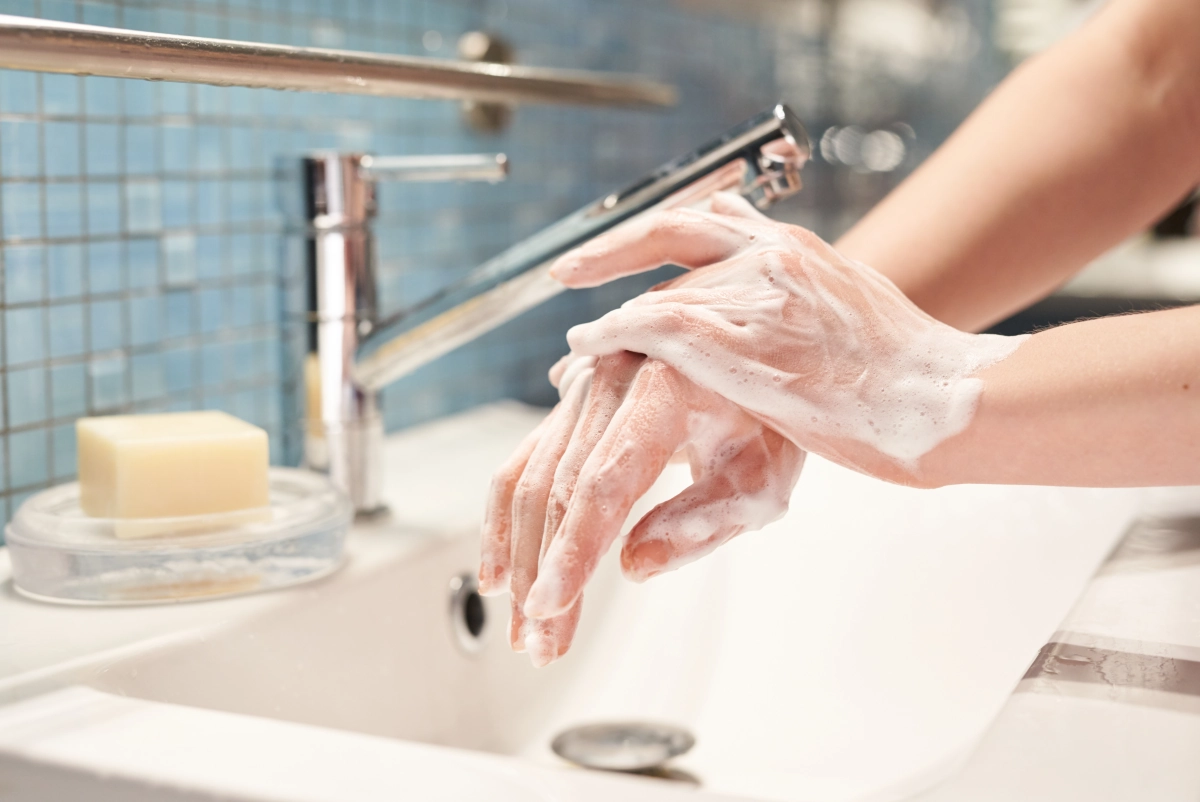While personal and environmental hygiene are often seen as social standards, their impact on our health and well-being is undeniable. According to research, daily attention to cleanliness of the body and surroundings can definitely improve our health.
Personal hygiene: the key to good form
Personal hygiene is an integral part of our daily lives, encompassing routines that have become second nature to many of us. Simple activities such as brushing our teeth, showering regularly, wearing freshly washed clothes and eating healthy, which seem to be an integral part of our daily routine, are of paramount importance to our overall health and well-being.
Regular hygiene practices are not only key to maintaining a decent appearance and smell. It's much more than that - it's a preventative measure that protects us from a wide range of infections and diseases. Whether we are talking about the common cold or more serious bacterial infections, personal hygiene plays a key role in their prevention.
One of the most fundamental aspects of personal hygiene is hand washing. It is a simple, yet extremely effective action that helps us to stay healthy. A number of diseases, both common ones, such as the common cold or flu, and more serious ones, such as cholera or certain types of gastritis, can be effectively prevented by regular and thorough hand washing. For example, during the COVID-19 pandemic, scientists repeatedly stressed the importance of hand washing to prevent the spread of the virus.
Another equally important aspect of personal hygiene is taking care of oral health. Regular tooth brushing, flossing and even regular visits to the dentist are activities that may seem routine, but have a profound impact on our health.
This is why it is so important that we understand and appreciate the importance of daily hygiene practices. Although we often don't pay attention to them, they really are crucial to our health and well-being.
Environmental hygiene: protection against hazards
Just like taking care of our personal hygiene, maintaining cleanliness in our immediate surroundings is an indispensable part of a health maintenance strategy. Cleanliness and tidiness in the places where we spend most of our time - such as our homes, workplaces and even public spaces such as parks, schools and public transport - have a direct impact on our health.
Environmental hygiene is not just about keeping our floors, furniture or domestic appliances clean. It is also about caring for the quality of the air we breathe, limiting the presence of harmful allergens in our surroundings and preventing the growth of micro-organisms that can be harmful to our health. Regular cleaning of our living and working spaces, washing surfaces that are frequently touched, and regular airing of rooms helps to reduce the presence of allergens such as dust mites, pollen and mould. These simple actions can prevent health problems such as allergies, asthma and other respiratory ailments.
The COVID-19 pandemic taught us all around the world a harsh lesson about the importance of environmental hygiene. Throughout the pandemic, we had to learn new habits related to keeping our surroundings clean - regularly disinfecting surfaces that we touch frequently, such as doorknobs, lift buttons, kitchen countertops, desks and mobile phones, became the norm. These activities, while they may have seemed onerous at first, have helped us to understand the importance of keeping the places we visit clean, not only for our individual health, but also for the health of the community as a whole.
By taking care of the hygiene of our surroundings, we not only protect ourselves, but also the people we meet and who visit our spaces. This means that caring for environmental hygiene also has a social dimension - it is an expression of respect for others and concern for their health. Thus, environmental hygiene is not only a matter of health, but also of responsibility and concern for the common good.
Sustainable hygiene: from physical health to emotional well-being
Although hygiene plays a key role in protecting our health, it is also important to remember the need for balance. An exaggerated focus on cleanliness and an obsessive approach to hygiene can lead to unexpected and undesirable consequences. This can manifest itself in the form of obsessive-compulsive disorder, which manifests itself in uncontrollable, recurring obsessions with cleanliness, leading to compulsive, often harmful behaviours.
In addition, there is a growing awareness that an overly restrictive approach to hygiene can have a negative impact on our immune system. A clean, sterile environment, while seemingly optimal at first glance, can deprive our body of the opportunity to come into contact with a wide range of microbes that are essential to 'train' our immune system. By remaining in such an environment, we do not give our immune system the chance to learn how to recognise and fight various pathogens, which in the long run can lead to its weakening.
Nevertheless, taking care of hygiene, both personal and ambient, is of inestimable value not only for our physical health, but also for our mental health. Clean and tidy surroundings have the power to transform our wellbeing, affecting our mood and overall mental wellbeing. A clean environment helps reduce stress levels, improves concentration and increases feelings of peace and satisfaction. These elements, in combination, contribute to our mental health.
In summary, hygiene, both personal and environmental, is an integral part of a healthy lifestyle. However, it is an area that requires a balancing act - care and attention, but also common sense and moderation. As in many other aspects of our lives, balance is key here too.

